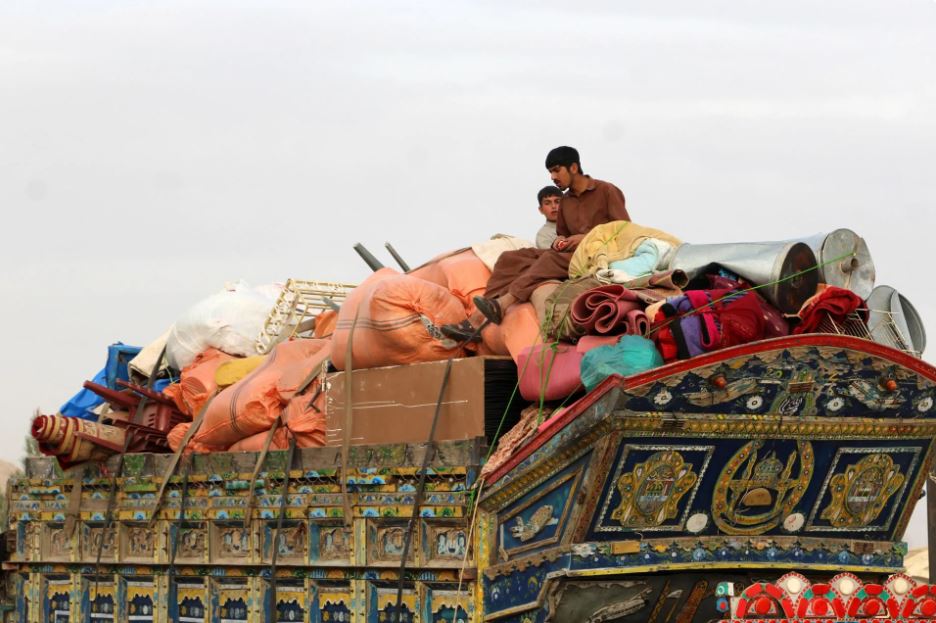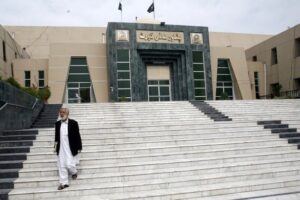As the deadline of September 1 approaches, the government’s ultimatum to Afghan refugees in Pakistan has triggered a wave of hasty property sales across Peshawar and other cities. Refugees who once believed they had found permanence now find themselves forced to liquidate assets before leaving.
At the center of this sudden activity lies a troubling question: how did Afghan refugees in Pakistan acquire billions worth of real estate in the first place? Legally, no framework exists that allows foreign nationals to purchase land or property in Pakistan. Yet, thousands did so, often with the help of forged documents, fake Pakistani identity cards, and complicit officials in key institutions.
Also Read: Govt to Regulate Afghan Madrassa Students, Block SIMs of Illegal Residents
The rush to sell
Property dealers in Peshawar confirm that Afghan families are offloading homes, shops, and land at discounted prices. Local buyers, including some government employees, are eagerly taking advantage. Reports suggest that certain officials are transferring these assets to the names of close relatives, insulating themselves from scrutiny.
Anti-corruption agencies have already opened investigations. Their aim is twofold: to trace whether these buyers are using unexplained wealth and to determine how much of the Afghan-owned property was secured through fraudulent means.
Also Read: Afghan refugees in Azakhel camp face severe hardships
The deeper rot: forged citizenship
For decades, Afghan refugees in Pakistan exploited loopholes within NADRA and passport offices. Corrupt insiders issued fake identity cards, which then opened doors to voting rights, government jobs, passports, and property ownership. Many Afghans migrated abroad on Pakistani passports, tarnishing the country’s reputation, while others integrated themselves deeply into local politics and bureaucracy.
The scale of this parallel citizenship is staggering. Each fake card represented not just an illegal document but a transfer of rights: to land, to power, and to legitimacy. The cost of this negligence now confronts Pakistan in the form of contested ownership and security risks.
Also Read: Afghan Refugees Start Selling Properties as Repatriation Begins In Peshawar
The security dimension
Officials argue that the decision to send Afghan refugees back is not only an economic issue but a matter of national security. In recent years, militant violence has surged again, with authorities claiming that groups based in Afghanistan — and at times supported by individuals within Pakistan’s refugee communities — facilitated attacks.
This has hardened the government’s resolve. Unlike previous extensions granted under UNHCR pressure, Islamabad now insists there will be no further delay. Registered or unregistered, Afghan refugees in Pakistan must leave.
What remains unanswered
Yet the exodus raises profound ethical and legal dilemmas. Is it fair for locals, especially powerful officials, to seize refugee property at throwaway prices? Shouldn’t there be mechanisms to recover illegally acquired land rather than allow quiet transfers?
Above all, the property question exposes a deeper failure of governance. Afghan refugees in Pakistan could not have bought land or secured documents without systemic corruption. Unless institutions such as NADRA and the passport office undergo strict reform, history may repeat itself in another form.
The story of Afghan refugees in Pakistan is not only about displacement and return. It is also about identity, law, and the fragile line between hospitality and exploitation. As the deadline nears, Pakistan faces not just the departure of millions but the reckoning of decades of negligence.












